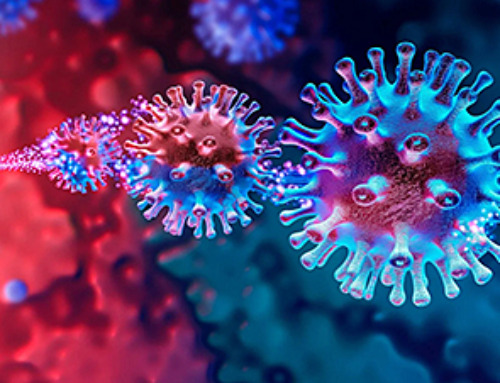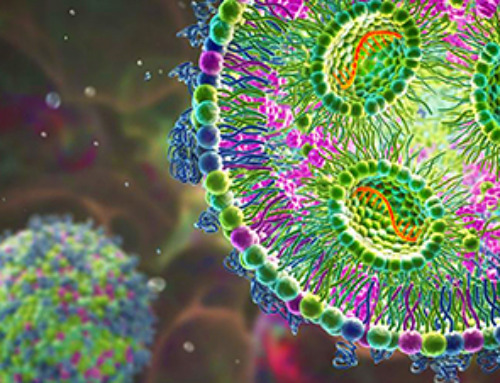USC Dornsife's CReATiNG technique revolutionizes synthetic biology by facilitating the cost-effective construction of synthetic chromosomes, promising significant advancements in various scientific and medical fields.
A groundbreaking new technique invented by researchers at the USC Dornsife College of Letters, Arts and Science may revolutionize the field of synthetic biology. Known as CReATiNG (Cloning Reprogramming and Assembling Tiled Natural Genomic DNA), the method offers a simpler and more cost-effective approach to constructing synthetic chromosomes. It could significantly advance genetic engineering and enable a wide range of advances in medicine, biotechnology, biofuel production, and even space exploration.
Simplifying Chromosome Construction
CReATiNG works by cloning and reassembling natural DNA segments from yeast, allowing scientists to create synthetic chromosomes that can replace their native counterparts in cells. The innovative technique enables researchers to combine chromosomes between different yeast strains and species, change chromosome structures, and delete multiple genes simultaneously.
Lead researcher Ian Ehrenreich, professor of biological sciences at USC Dornsife, said the method is a major improvement over current technology. "With CReATiNG, we can genetically reprogram organisms in complex ways previously deemed impossible, even with new tools like CRISPR," he said. "This opens up a world of possibilities in synthetic biology, enhancing our fundamental understanding of life and paving the way for groundbreaking applications."
The study will be published today (December 20) in the journal Nature Communications.
A Leap Forward in Genetic Engineering
The field of synthetic biology has emerged as a way for scientists to take control of living cells, such as yeast and bacteria, to better understand how they work and to enable them to produce useful compounds, such as new medicines.
"Over the last decade or so, a new form of synthetic biology has emerged called synthetic genomics, which involves synthesizing whole chromosomes or entire genomes of organisms," Ehrenreich said. "The thing about most synthetic genomics research is that it involves building chromosomes or genomes from scratch using chemically synthesized DNA pieces. This is a ton of work and extremely expensive."
However, there have been no alternatives — until now. "CReATiNG offers an opportunity to use natural pieces of DNA as parts to assemble whole chromosomes," said Agilent postdoctoral fellow Alessandro Coradini, who was study first author.
The method makes advanced genetic research more accessible by significantly lowering costs and technical barriers so scientists can unlock new solutions to some of the most pressing challenges in science and medicine today.
CReATiNG Could Help Medicine, Space Exploration, and More
The findings are particularly significant for their potential applications in biotechnology and medicine. CReATiNG could lead to more efficient production of pharmaceuticals and biofuels, aid in the development of cell therapies for diseases like cancer, and pave the way to methods of environmental bioremediation, such as creating bacteria that consume pollutants.
The method might even extend to helping humans live for long periods in space or other harsh environments. Scientists could one
One of the most striking aspects of the study, according to the researchers, is how rearranging chromosome segments in yeast can alter their growth rates, with some modifications resulting in up to a 68% faster or slower growth. This discovery highlights the profound impact that genetic structure can have on biological function and opens up new research pathways to further explore these relationships.
Reference: "Building synthetic chromosomes from natural DNA" 20 December 2023, Nature Communications.
DOI: 10.1038/s41467-023-44112-2
In addition to Ehrenreich and Coradini, authors on the study include Christopher Ne Ville, Zachary Krieger, Joshua Roemer, Cara Hull, Shawn Yang and Daniel Lusk, all of USC Dornsife.
The study was supported by National Science Foundation grant 2124400, National Institutes of Health grant R35GM130381 and an Agilent Postdoctoral Fellowship.
News
COVID-19 still claims more than 100,000 US lives each year
Centers for Disease Control and Prevention researchers report national estimates of 43.6 million COVID-19-associated illnesses and 101,300 deaths in the US during October 2022 to September 2023, plus 33.0 million illnesses and 100,800 deaths [...]
Nanomedicine in 2026: Experts Predict the Year Ahead
Progress in nanomedicine is almost as fast as the science is small. Over the last year, we've seen an abundance of headlines covering medical R&D at the nanoscale: polymer-coated nanoparticles targeting ovarian cancer, Albumin recruiting nanoparticles for [...]
Lipid nanoparticles could unlock access for millions of autoimmune patients
Capstan Therapeutics scientists demonstrate that lipid nanoparticles can engineer CAR T cells within the body without laboratory cell manufacturing and ex vivo expansion. The method using targeted lipid nanoparticles (tLNPs) is designed to deliver [...]
The Brain’s Strange Way of Computing Could Explain Consciousness
Consciousness may emerge not from code, but from the way living brains physically compute. Discussions about consciousness often stall between two deeply rooted viewpoints. One is computational functionalism, which holds that cognition can be [...]
First breathing ‘lung-on-chip’ developed using genetically identical cells
Researchers at the Francis Crick Institute and AlveoliX have developed the first human lung-on-chip model using stem cells taken from only one person. These chips simulate breathing motions and lung disease in an individual, [...]
Cell Membranes May Act Like Tiny Power Generators
Living cells may generate electricity through the natural motion of their membranes. These fast electrical signals could play a role in how cells communicate and sense their surroundings. Scientists have proposed a new theoretical [...]
This Viral RNA Structure Could Lead to a Universal Antiviral Drug
Researchers identify a shared RNA-protein interaction that could lead to broad-spectrum antiviral treatments for enteroviruses. A new study from the University of Maryland, Baltimore County (UMBC), published in Nature Communications, explains how enteroviruses begin reproducing [...]
New study suggests a way to rejuvenate the immune system
Stimulating the liver to produce some of the signals of the thymus can reverse age-related declines in T-cell populations and enhance response to vaccination. As people age, their immune system function declines. T cell [...]
Nerve Damage Can Disrupt Immunity Across the Entire Body
A single nerve injury can quietly reshape the immune system across the entire body. Preclinical research from McGill University suggests that nerve injuries may lead to long-lasting changes in the immune system, and these [...]
Fake Science Is Growing Faster Than Legitimate Research, New Study Warns
New research reveals organized networks linking paper mills, intermediaries, and compromised academic journals Organized scientific fraud is becoming increasingly common, ranging from fabricated research to the buying and selling of authorship and citations, according [...]
Scientists Unlock a New Way to Hear the Brain’s Hidden Language
Scientists can finally hear the brain’s quietest messages—unlocking the hidden code behind how neurons think, decide, and remember. Scientists have created a new protein that can capture the incoming chemical signals received by brain [...]
Does being infected or vaccinated first influence COVID-19 immunity?
A new study analyzing the immune response to COVID-19 in a Catalan cohort of health workers sheds light on an important question: does it matter whether a person was first infected or first vaccinated? [...]
We May Never Know if AI Is Conscious, Says Cambridge Philosopher
As claims about conscious AI grow louder, a Cambridge philosopher argues that we lack the evidence to know whether machines can truly be conscious, let alone morally significant. A philosopher at the University of [...]
AI Helped Scientists Stop a Virus With One Tiny Change
Using AI, researchers identified one tiny molecular interaction that viruses need to infect cells. Disrupting it stopped the virus before infection could begin. Washington State University scientists have uncovered a method to interfere with a key [...]
Deadly Hospital Fungus May Finally Have a Weakness
A deadly, drug-resistant hospital fungus may finally have a weakness—and scientists think they’ve found it. Researchers have identified a genetic process that could open the door to new treatments for a dangerous fungal infection [...]
Fever-Proof Bird Flu Variant Could Fuel the Next Pandemic
Bird flu viruses present a significant risk to humans because they can continue replicating at temperatures higher than a typical fever. Fever is one of the body’s main tools for slowing or stopping viral [...]





















